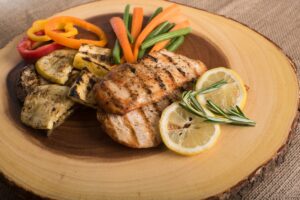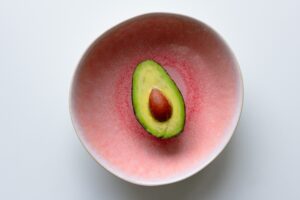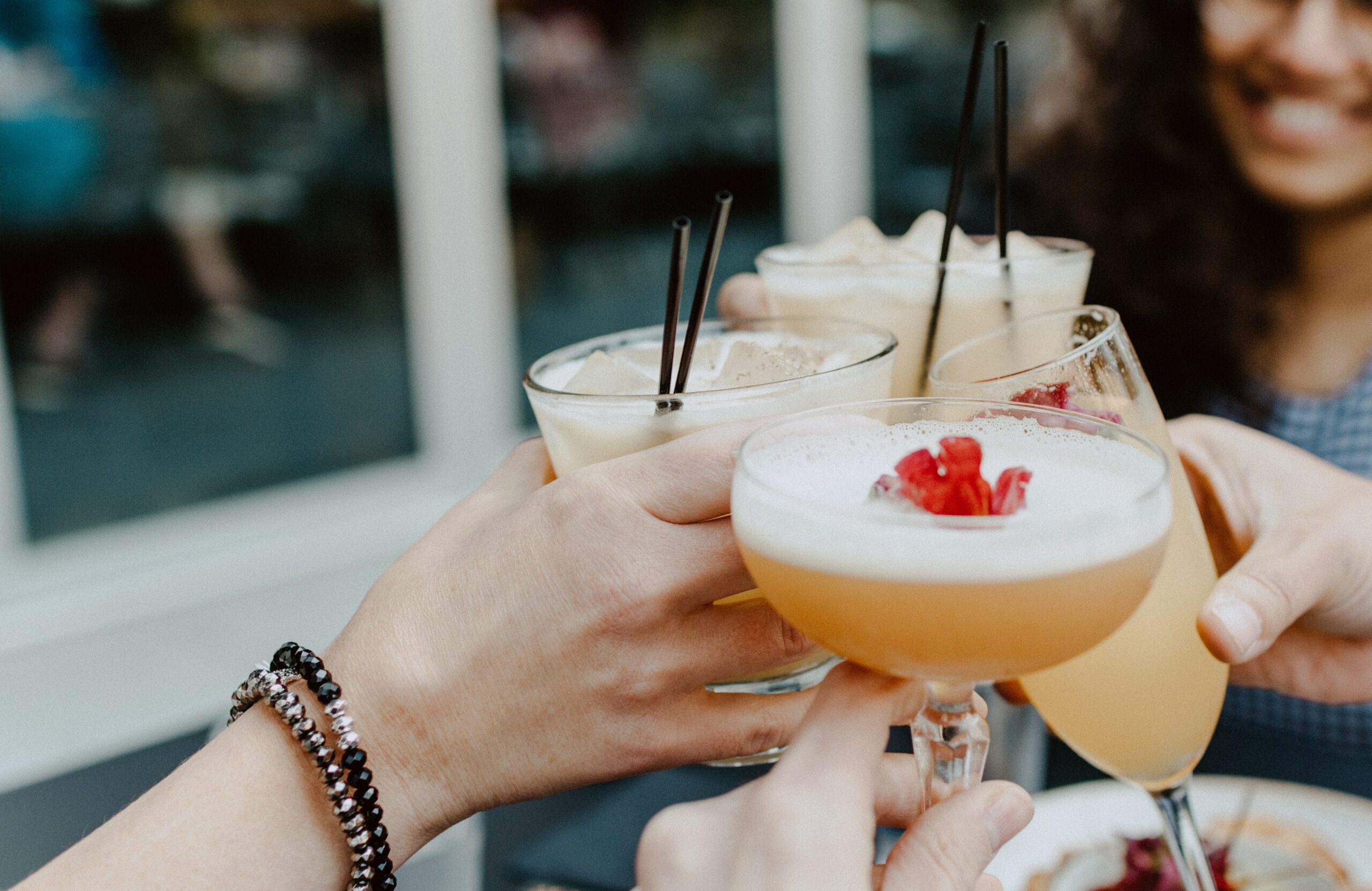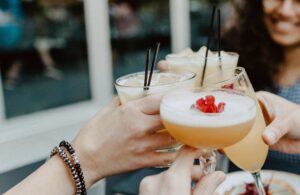Understanding Food Labels: What’s Hiding In Your Food?
Making healthy and informed food choices is essential for maintaining overall well-being. It’s important for us to know what’s in our food. It’s typically labeled on the package, but it can be confusing and hard to read. As the saying goes, “You are what you eat.” Understanding food labels is a crucial step in ensuring you’re nourishing your body with the right nutrients and avoiding hidden additives that may negatively impact your health. Let’s delve into the importance of deciphering food labels and using valuable tips on how to make informed choices to truly know what’s hiding in your food.

The Importance of Food Labels
Food labels are like a window into the contents of packaged foods, providing valuable information about their nutritional composition and ingredients. They empower you to make choices aligned with your dietary preferences and health goals if you know how to read it! By reading and understanding food labels, you can:
- Control Nutrient Intake: Food labels list essential nutrients such as calories, fats, sugars, proteins, vitamins, and minerals. This information helps you maintain a balanced diet and manage calorie intake.
- Avoid Allergens: If you have food allergies or sensitivities, labels can help you identify potential allergens and make safe choices.
- Identify Hidden Ingredients: Labels reveal the presence of hidden ingredients like additives, artificial flavors, and colorings that may impact your health over time.
- Compare Products: Food Labels allow you to compare different products and choose the one that best aligns with your dietary needs.
- Make Informed Decisions: By understanding food labels, you can make informed decisions that contribute to your overall health and well-being.
 Deciphering Food Labels: What to Look For
Deciphering Food Labels: What to Look For
- Serving Size: Begin by checking the serving size, as all nutritional information on the label is based on this. A serving size isn’t meant to tell you only to eat that amount. It is there to tell you the amount of food that applies to the nutrition. Be mindful of portion sizes to accurately assess your nutrient intake.
- Calories and Macronutrients: Pay attention to the calorie count and the amounts of fats, carbohydrates, and proteins per serving. Choose foods that align with your dietary goals.
- Nutrient Content: Look for key nutrients such as fiber, vitamins (like Vitamin A, C, and D), and minerals (like calcium and iron) that are beneficial for your health.
- Ingredients List: The ingredients list provides insight into what’s actually in the food. Ingredients are listed in descending order by weight, so the first few ingredients make up the bulk of the product. Avoid items with lengthy lists of unfamiliar or overly processed ingredients.
- Additives and Preservatives: Be wary of additives, artificial sweeteners, and preservatives. Some additives may have potential health risks, so opt for products with minimal or no additives.
- Sodium and Sugar: Excessive sodium and added sugars can contribute to health issues. Choose products with lower sodium and sugar content.
- Allergens: If you have allergies, carefully read the label for any potential allergens or cross-contamination warnings. Allergens are listed in bold under the ingredient list.
- % Daily Value: This percentage helps you understand how a serving of the food contributes to your daily nutrient intake based on a 2,000-calorie diet. Aim for products with higher percentages of essential nutrients.
In general, you want to look for labels that are lower in saturated fat (specifically trans fat), added sugars, and sodium

. All of these have been linked to heart disease and chronic obesity when consumed in high amounts. The items that you want more of are fiber, vitamin D, iron, calcium, and potassium. A diet high in fiber helps lower cholesterol, keeps blood glucose level, reduces calorie intake, and promotes a healthy digestive tract.
What’s Hidden?
There are several common food additives in food today. Research
has shown that many have detrimental health affects while others can actually be good for you? An example of a good one is Guar gum. It’s added to food to bind or thicken products. Guar gum is high in fiber and can help increase the feeling of fullness, so you intake less calories. An example of a detrimental additive is high fructose corn syrup. It sweetens food, but in high amounts has been linked to obesity and diabetes.
Misleading Food Labels
Marketing can be a powerful tool, especially when it comes to food. However, a good bit of labels that are promoted as “healthy” are just buzz words. Without knowing exactly what they mean, you could be buying a product thinking that it’s organic and healthy, when really it’s the opposite of what you need. Here are some common marketing food labels and what they really mean.
- All Natural: there are no artificial ingredients or colors. It does not mean that the animal or product lives/was grown outdoors.
- Humanely Raised: common on animal products, but there is no legal definition for it. It can be put on products even in places where animals are raised in confinement systems.
- No Hormones or Steroids: It’s actually illegal to use hormones or steroids in all chicken products so whether it has this label or not, you’re getting the same product.
- Fresh: this just means that the meant never went below 26 degrees. Which is not always a good thing!
- Vegetarian Diet: Marketers can put this on a food label without it being true. There are no legal checks on farms to determine what is fed to the animals.
- Cage Free: one of the biggest misleading labels! All chickens raised for meat are cage free. So don’t buy the more expensive package just because it has this label.
In a world saturated with packaged foods, being a conscious consumer is a powerful way to take control of your health. Learning how to read and interpret food labels empowers you to make informed choices, allowing you to understand exactly what’s hiding in your food. By paying attention to serving sizes, calories, nutrients, ingredients, and certifications, you can make dietary decisions that align with your well-being goals. Remember, the more you know about your food, the better equipped you are to nourish your body and enjoy a healthier, happier life.
For guidance on nutrition and what you need to do to manage your health, email Jalpa to set up a consultation!
Jalpa is a registered dietitian and nutritionist with a Master’s degree in Health & Nutrition from Brooklyn College, CUNY in New York. She also holds a Certificate of Training in Adult Weight Management through the Academy of Nutrition & Dietetics, CDR.
Related Articles:





 Protein transports nutrients throughout the body, regulates fluid balance, and carries enzymes that are essential for bodily functions such as digestion and blood clotting. Important, right?! A huge role protein has is acting as a messenger for hormone function. Protein amino acids tell the body when to uptake sugar into the cell (insulin), and when to build more tissue, including bone (human growth hormone).
Protein transports nutrients throughout the body, regulates fluid balance, and carries enzymes that are essential for bodily functions such as digestion and blood clotting. Important, right?! A huge role protein has is acting as a messenger for hormone function. Protein amino acids tell the body when to uptake sugar into the cell (insulin), and when to build more tissue, including bone (human growth hormone).  Carbohydrates often get a bad rap for making people gain weight. But that is only true if they are overconsumed. If you are an athlete or have a very active job such as a nurse or construction worker, carbs will fuel the energy you need to perform well. Focus on high fiber, unprocessed carbs for the best results.
Carbohydrates often get a bad rap for making people gain weight. But that is only true if they are overconsumed. If you are an athlete or have a very active job such as a nurse or construction worker, carbs will fuel the energy you need to perform well. Focus on high fiber, unprocessed carbs for the best results. 


 Essential Nutrient: Omega-3s
Essential Nutrient: Omega-3s




